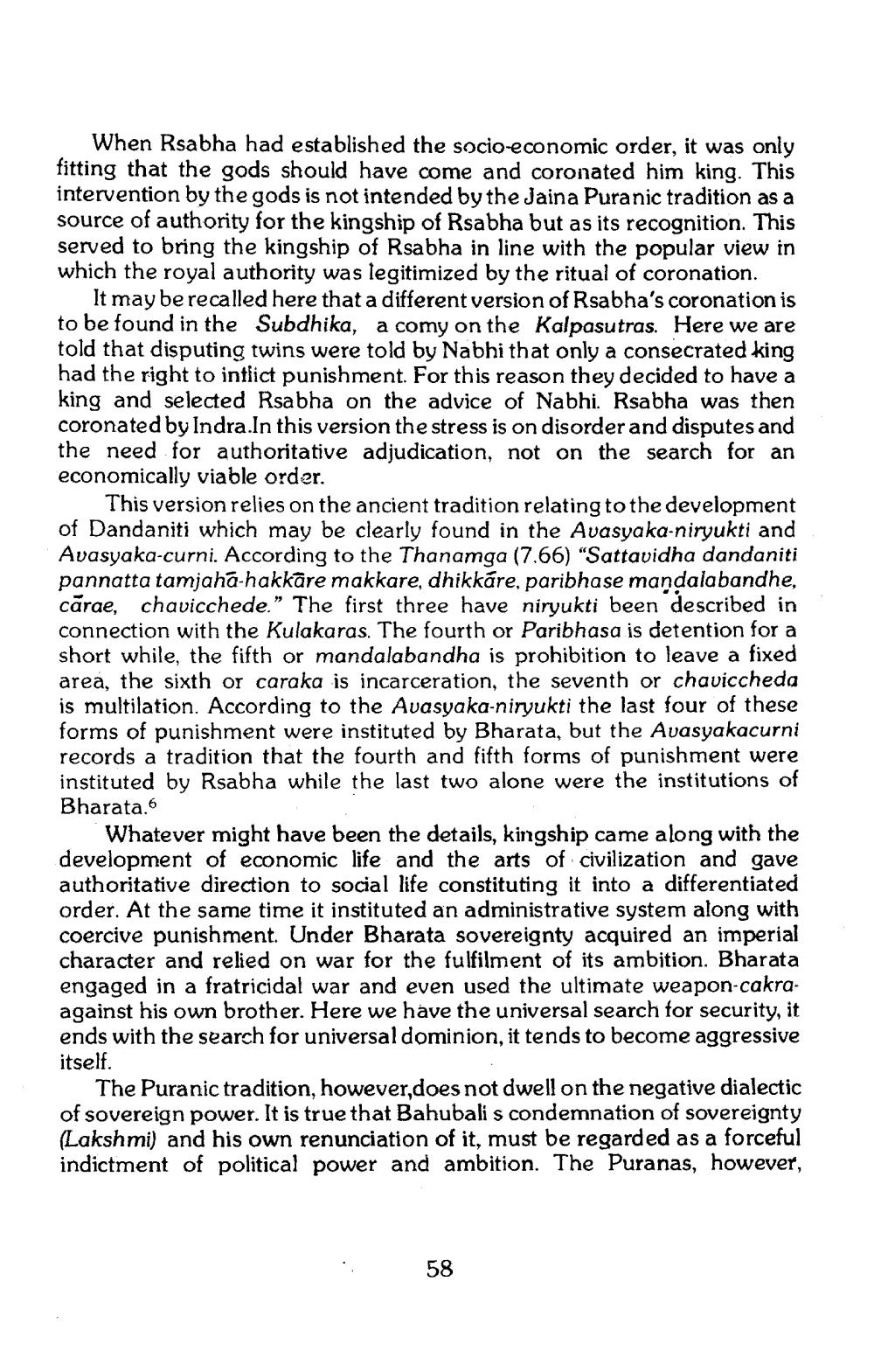________________
When Rsabha had established the socio-economic order, it was only fitting that the gods should have come and coronated him king. This intervention by the gods is not intended by the Jaina Puranic tradition as a source of authority for the kingship of Rsabha but as its recognition. This served to bring the kingship of Rsabha in line with the popular view in which the royal authority was legitimized by the ritual of coronation.
It may be recalled here that a different version of Rsabha's coronation is to be found in the Subdhika, a comy on the Kalpasutras. Here we are told that disputing twins were told by Nabhi that only a consecrated king had the right to intrict punishment. For this reason they decided to have a king and selected Rsabha on the advice of Nabhi. Rsabha was then coronated by Indra.In this version the stress is on disorder and disputes and the need for authoritative adjudication, not on the search for an economically viable order.
This version relies on the ancient tradition relating to the development of Dandaniti which may be clearly found in the Avasyaka-niryukti and Avasyaka-curni. According to the Thanamga (7.66) "Sattavidha dandaniti pannatta tamjaha-hakkāre makkare, dhikkáre, paribhase mandalabandhe, carae, chavicchede." The first three have niryukti been described in connection with the Kulakaras. The fourth or Paribhasa is detention for a short while, the fifth or mandalabandha is prohibition to leave a fixed area, the sixth or caraka is incarceration, the seventh or chaviccheda is multilation. According to the Avasyaka-niryukti the last four of these forms of punishment were instituted by Bharata, but the Avasyakacurni records a tradition that the fourth and fifth forms of punishment were instituted by Rsabha while the last two alone were the institutions of Bharata.6
Whatever might have been the details, kingship came along with the development of economic life and the arts of civilization and gave authoritative direction to social life constituting it into a differentiated order. At the same time it instituted an administrative system along with coercive punishment. Under Bharata sovereignty acquired an imperial character and relied on war for the fulfilment of its ambition. Bharata engaged in a fratricidal war and even used the ultimate weapon-cakraagainst his own brother. Here we have the universal search for security, it ends with the search for universal dominion, it tends to become aggressive
itself.
The Puranic tradition, however,does not dwell on the negative dialectic of sovereign power. It is true that Bahubali s condemnation of sovereignty (Lakshmi) and his own renunciation of it, must be regarded as a forceful indictment of political power and ambition. The Puranas, however,
58




